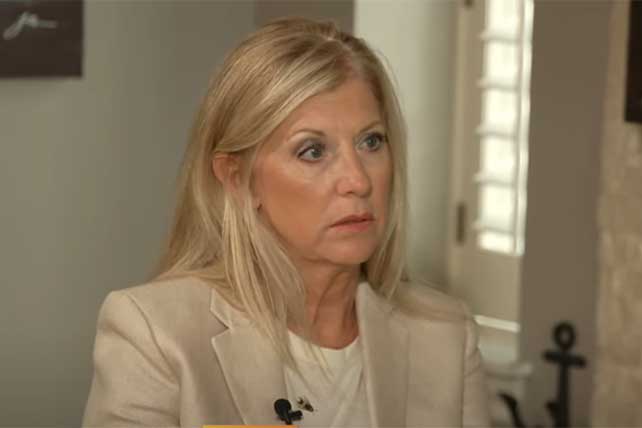Sam Allberry on The Stetzer ChurchLeaders Podcast.mp3: this mp3 audio file was automatically transcribed by Sonix with the best speech-to-text algorithms. This transcript may contain errors.
Voice Over:
Welcome to the Stetzer Church Leaders Podcast, conversations with today’s top ministry leaders to help you lead better every day. And now, here are your hosts, Ed Stetzer and Daniel Yang.
Daniel Yang:
Welcome to the Stetzer Church Leaders Podcast, where we’re helping Christian leaders navigate and lead through the cultural issues of our day. My name is Daniel Yang, national director of Churches of Welcome at World Relief. And today we’re talking to Sam Albury. Sam is an apologist, author, speaker, and associate pastor at Immanuel Nashville. He’s the author of a number of books, including Is God anti-gay? Seven myths about Singleness and You’re Not Crazy Gospel Sanity for Weary Churches, which he co-authored with Ray Ortlund. Now let’s go to Ed Stetzer, editor in chief of Outreach Magazine and the dean of the Talbot School of Theology.
Ed Stetzer:
Can I tell you, I am a connoisseur of fine book titles, and. And you’re not crazy. It’s just. I mean, it literally had to be the title of the year, because I think a lot of people were like, am I crazy? Or is the world gone crazy? And of course, you and Ray wrote together. You’re not crazy gospel sanity for weary churches. I was disappointed that you didn’t mention in the bio I’m not not you. I’m talking about Daniel Yang did mention that you went to Wycliffe Hall, where we have something in common. That’s where you did your seminary, is that correct?
Sam Allberry:
It is indeed, yeah. Many, many years ago now there in 2000 to 2003. But it was well, it will.
Ed Stetzer:
Bring you back for classes any time. So as I.
Sam Allberry:
Will happily come anytime. Yeah I love.
Ed Stetzer:
I love teaching there and have a good time. But but you have been uh, you’ve written kind of in different spaces. I want to come and talk a little bit later on about, I think, a very helpful Christianity Today article where you wrote about Andy Stanley’s unconditional contradiction. We’ll talk about that. Um, again, I know you didn’t necessarily pick the title, but I did love the title of the book. You’re not crazy because I think for a lot of pastors, they are, you know, weary about the cultural moment. I think 2024 is probably going to be worse than prior years, but I also think we’re better prepared than we were in prior years. So in the book, you talk about, there was a mismatch between the beauty of the truth and the culture of my church, what was going on, and pack a little bit of what you and Ray are writing about.
Sam Allberry:
Yeah, this is something which we’re seeing around us all the time. Um, that is, we can be orthodox in our truth, but in the relational culture of our churches, we’re often, um, preaching the very gospel of grace and love and peace that we think we’re preaching from the pulpit. And in my own story, I remember being at my church, and we were a church that was known for good, for good Bible teaching. And yet I began to realize there were there were people, long term members of my church, well taught members in my church who didn’t feel safe being open about problems they were having in their lives. And it just made me think, are we as are we, as healthy a church as we think we are? Yet the teachings great. But if it if we don’t feel safe being honest with each other, then maybe our culture. Isn’t healthy.
Daniel Yang:
Sam. I mean, that’s really helpful to framing. Um. Some churches are focused on faithful doctrinal teaching, but they might neglect culture. What are some of the characteristics of churches that are doing that?
Sam Allberry:
Well, I think we must be churches that are committed to Orthodox teaching, obviously. Um, but I think sometimes we don’t go beyond that. And the truth of the gospel is meant to create a new relational reality. Uh, we’re meant to be socially embodying the very grace and truth that we are seeking to proclaim. So I think what it can sometimes look like is, is being a church where people feel very performative, where you don’t have a sense of honesty among people, a sense of gospel safety. Um, uh, yeah. Where people feel like they’ve got to put on a mask, look like their lives are together, that kind of thing. So what we’re really trying to do in this, in this book, is to try and show actually how the gospel is trying to create a new social environment that we can all enjoy. And part of our responsibility as pastors and leaders is to is to be embodying that ourselves as much as we can and trying to cast a vision for it and help, help lead the church into that kind of healthy culture.
Ed Stetzer:
Yeah. So, um, your this published by Crossway Forensic Crossway and I probably in the similar theological stream than maybe a lot of our listeners are not. But in our theological stream, we tend to put the gospel before everything gospel centered, gospel saturated, gospel rich. And so I think it probably would be worth a bit of an explanation to people who maybe aren’t used to that language. You’re like, well, of course we love the gospel. You know, people are born again by the gospel. What do you mean by that? And what’s the contrast? Because again, you’re not crazy. The subtitle kind of speaks to the weary churches. So gospel sanity, what’s the gospel doing in that sentence and that subtitle? And what’s the contrast to it if we’re not driven by gospel sanity?
Sam Allberry:
Yeah. Thank you. Um, so by gospel, we simply mean that God gives the very best things he has to give to people who deserve it the least. And we find Jesus himself inviting us to come to him in our weariness, to find rest and to find healing in him. And so really, what we’re what we’re asking people to consider is to is for our churches to be places where the healing presence of Jesus is part of our felt reality. It’s part of what we can experience. So it’s really saying that the gospel doesn’t just shape our thinking, it’s not just truth that we adhere to. It actually should be something that is is tangible. From the moment we step into the doors of our church Sunday, by Sunday, I often, I often think of it this way it. Jesus has made it safe for God to know the worst things about me, and one outworking of that should be that among us as Christian disciples, church should be the place where we most feel safe to share what’s really going on in our lives, where there won’t be a spirit of condemnation or judgmentalism, but where together we are experiencing the healing presence of Jesus himself.
Ed Stetzer:
I think in uh, again, I’m I’m remember I swim in the same water. So I’m not bothered by the Gospels any language, but I think other people might just talk about a rich understanding of grace and how that might be, uh, you know, be the kind of church that we all sort of want that maybe we all sort of dream for. But at the same time, man, it’s it’s hard to get to that point. So we seem to be attracted to whatever the opposite of gospel sanity. The reason that there’s weary churches is somehow we’re drawn to that other way. So, I mean, why is that? Unpack that.
Sam Allberry:
Yeah, I think it’s because we’re still very fleshly. Um, as as people. The gospel is so counterintuitive. Um, I moved to the States about four years ago. One of the things I had to adjust to was driving on the other side of the road, and it took a while. There were several times I would merrily drive out of out of the house onto the wrong side of the street, and all of my learned intuitions were wrong and I had to keep going. No drive on the road. I’d actually. I actually sang a little ditty to myself as I was driving to remind myself to drive on the right hand side. And I think something similar happens as we come to Jesus. The gospel is so counterintuitive. We’re we all of our default settings, all of our factory presets are. I’ve got to prove myself. I’ve got to be enough. And unless we’re consciously countering that, our church life will default back into it. And so often in church, it can feel like churches where I’ve. I’ve got to be Christian enough. Um, which is why we find we’re sometimes hesitant to share struggles, sins, burdens, that kind of thing. And we have such a beautiful message to proclaim a message of grace. And Jesus himself says, by this will all people know you are my disciples, not by your doctrinal statement, not by the quality of your music, not by the rhetorical gifts of your pastor, but by your love for one another. That’s going to be one of the things that Jesus says will move the needle in terms of how the world sees us.
Daniel Yang:
Yeah. You know, same I know that this gospel centeredness, I mean, that’s not like a program to implement, but it’s really interesting how at times we will preach grace and then have the opposite effect in terms of the culture of the church, where things can feel very legalistic, where people do have to sort of have it together in order to feel like they can belong. I’m curious from your from your practice and also your experience as a pastor at Emmanuel. Like what, what what is necessary for to create that culture where people don’t have to pretend that they have it all together? What does it look like for the leadership? And then how does that trickle down to the members of the church?
Sam Allberry:
Yeah, I think that there are several answers to that. One is obviously that we’re we’re preaching a vision for it. We’re seeing the ways the New Testament keeps calling us to it. Um, so one of the verses that has meant so much to us at Emmanuel is in, in, uh, Romans 15, I think verse seven, where Paul says, welcome one another as Christ has welcomed you for the glory of God. Christ has welcomed you, is the gospel. That’s an amazing four word sentence summary of the gospel. And Paul says, therefore welcome one another as Christ has welcomed you. So what we’ve received from Jesus vertically we are to embody and express horizontally. So there’s a teaching element to this. It’s trying to show people how the gospel is meant to, to affect our our life together. I think as well we need to lead by example as pastors, which means finding appropriate ways to be honest about our own continued need for progress in the Christian life. There’s a there’s an irresponsible way of doing that. Uh, we don’t want people to feel burdened by our sins and our struggles, but we do want them to know that we are we are still ourselves needing Jesus day by day.
Sam Allberry:
And I think within our leadership teams, within our staff, teams, elders, teams, whatever it might be to try to cultivate that kind of dynamic as well. We we start every elders meeting here. We’ll look at the Bible, we’ll pray, but we’ll have a moment for people to share joys and sorrows in their own lives. And we wonderfully have a group of elders where people feel able to be honest and people share very personal struggles, and then it then flavors the rest of the meeting. It feels less like a business meeting, um, because we’re feeling the sweetness of the gospel, the the weariness of the saints as we’re having the, the various things that we then discuss. So hopefully, if if we can’t embody it ourselves as, as pastoral leaders, then we probably shouldn’t expect to see it in our congregation. Um, so our unwritten rule here at Immanuel, whenever we do a Q&A. Um, as one, one of our meetings or there’s a time of confession, the pastor goes first. Uh, but we have to lead by example in that. And again, there’s there’s appropriate boundaries that.
Ed Stetzer:
Oh, and I would tell you right now the alarm bells are going off in some people’s heads because. Yeah, because I would say to that, I mean, and I went to seminary, I don’t even know in the 90s, I guess. And I still remember caution about sharing too much because it’ll be used against you later in, uh, and I would say to that, that, you know, I mean, there’s a, there’s a wisdom in what to share in the midst of your struggle, you know. And so but but I think most people would say that pastors in the age in which we live have been more transparent than they were in prior ages. And there maybe that’s been received well, but it’s also it’s complicated. So. So how would you advise? Because remember, our audience is pastors and church leaders. So how would you advise them to share if they go first in the time of confession? You know, I’m really struggling with blank. Um, and that freaks everybody out. It’s probably not going to be too much going on after that. So how would what would that look like practically?
Sam Allberry:
Yeah. I think we want to avoid saying things that will make people worry about us, or say things that will set the kind of, I don’t know, this is this may be a weird English phrase set the hares running.
Ed Stetzer:
That’s a weird English phrase, but I get it.
Sam Allberry:
Yeah. Um, so we don’t want to derail the meeting, but we want to say enough to make it easier for other people to share what they’re dealing with and to show that we’re flesh and blood. We’re sheep as well as shepherds. Um, so it’s good for people to see our, our sheepishness in the way that we shepherd. So one example might be one of the things I shared with our church. We’d been looking at a passage of in acts where the apostles were being bold, and I shared an example of where I had completely blown a wide open opportunity for the gospel because I didn’t want to cause awkwardness. And there were fear of man was was preventing me from being honest about Jesus. Other times I’ve shared that that I can be irritable. Um, one of our other pastors sometimes shares if he’s if he knows he’s being impatient with his kids at home. Um, so nothing that is is scandalous and going to make everyone freak out. Uh, Ray Ortlund we talked about earlier, Ray began a sermon once he was preaching. I can’t remember which passage, but a passage that dealt with sexual sin. And Ray began his sermon by saying, your pastor is a sexual sinner. And he said, now don’t worry, I’m not. I’m not cheating. At what? I’m not cheating on my wife. By God’s grace, I’m not looking at porn. But he said, if you knew some of the thoughts that went through my head, you may not want to be my friend. Now, that was honest. It wasn’t honest in a way that made people suddenly worried about their pastor, but it was honest enough that actually Ray gave permission for a whole load of people who were struggling with porn to be able to say that they were. Um, so it’s trying to open the door. It’s, it’s it’s not there to serve ourselves. It’s there to serve others. Um, it’s not treating the pulpit as the confessional, but it’s. How can I set the scene to make it easier for other people to share what they’re dealing with?
Ed Stetzer:
Love that. The. And we should at Auckland’s got a book called The Death of Porn. Men of Integrity Building a World of Nobility. I actually think we had him on the podcast to talk about that. So I’m, uh, I still remember we brought him in to teach a class, and, uh, I sat in on some of the class. He’s a Wheaton College grad back where I used to serve, and he, uh, he was just. It was just great. Him just saying, you know, we just heard about a leader fall, and he said, I owe it to you to finish. Well, I don’t know. You know, a lot of people, all of us really love Ray Ortlund. The, uh, it is interesting, though. I mean, even the example you were given a minute ago, you’re talking about sexuality and and your own confession that you weren’t the fear of man and not bold. Yet in and around all of these conversations can come around the modern conversation, today’s conversation about issues of sexuality and, um, you have been bold in in that conversation as well. But let’s not miss this too, because, I mean, even in the title of the book, we’re talking gospel sanity. Really, if we talk about just being a grace filled church that allow people to struggle for a lot of people. Well, does grace mean how do we engage people who are struggling with same sex attraction? What do we what does it mean? Is God anti-gay as a book that you wrote and more? And I want to talk a little bit about that because and again, I’ll be careful to kind of thread this needle.
Ed Stetzer:
But, you know, I think that one of the conversations that really birthed of this was Andy Stanley’s unconditional conference. And I think that, uh, and I’ve and I’ve talked to Andy and expressed my thoughts and concerns and etc., etc., we came to some different conclusions. But I think what Andy would say is he’s trying to have a grace filled place for people to struggle, and particularly unconditional conference for parents to stay in connection with their children who identify as LGBTQ plus. So how is that not because you wrote an article? I was very pleased to see Christianity Today publish again Andy Stanley’s Unconditional contradiction. Probably not your title. The subtitle was the Atlanta area pastor said he affirms a New Testament sexual ethic, but his words and deeds have muddled the message, which is reflected some in your article. How is that different and how would you want? We don’t have to say Andy Stanley, but how would you want pastors to be a place where people with same sex attraction can be on a journey and struggle, but what’s the difference between where you might be and where others might be?
Sam Allberry:
Yeah, that’s such a such a big question. We want our churches to be places where it’s safe to confess any kind of sin. And so when it comes to an issue like same sex attraction, uh, we want to not be so treating that issue as if it’s, it’s a sin entirely of its own kind of category, that would make people feel like, oh, I could never share here that this is something I struggle with. But we do want people to know it is a sin. It’s something to be confessed. Uh, we’re not just asking. This is this is a difference between, you know, being biblically honest about sin and the kind of cultural counterfeit of being authentic. Uh, cultural authenticity is me saying, here are all my flaws. It’s just the way I am. You’ve got to accept it. Whereas a biblical confession is me saying, hey, these are the areas where I recognize I’m not. I’m not as I should be in God’s sight, that I have desires, temptations, inclinations, propensities that I know contradict God’s will. And it’s one of the areas where I need the ongoing help of Jesus, and that the encouragement of his saints. So I, we, we, we want our churches to be grace filled. But that that doesn’t mean we say sin is okay. It means that we welcome confession. And those two things are not the same thing. And when someone confesses, we we thank them. We honor them for doing that. And we encourage them in, in repentance.
Ed Stetzer:
So, um.
Ed Stetzer:
Let me press in a little bit on, on part of your answer, because at the beginning of your answer, you talked about, uh, confessing same sex attraction and use that right in the sentence of as sin. Because, as you know, one of the big conversations today, um, is, you know, how do we respond to somebody who says I’m same sex attracted, but I’m not acting on that? Um, is that something that we would call them to confess as sin in Sam Elba’s understanding is because, as you know, I mean, when most people listening, probably this nuance is missed, but it’s definitely not missed in the question I’m asking you, Sam. I’m trying to understand where you are and how you would express to us, because for for most of us, most of what we’ve heard in the last few years was that people who struggle with same sex attraction, who don’t act upon it, are not sinning. And just as if I struggle with opposite sex attraction and I don’t act on it, I’m not sinning. But there’s been some pushback on that. And your first sentence kind of I wasn’t sure if you were trying to make a point that maybe you were or weren’t making. So let me give you the opportunity to make that. The sets are church Leaders Podcast is part of the Church Leaders Podcast Network, which is dedicated to resourcing church leaders in order to help them face the complexities of ministry. Today, the Church Leaders Podcast Network supports pastors and ministry leaders by challenging assumptions, by providing insights and offering practical advice and solutions and steps that will help church leaders navigate the variety of cultures and contexts that we’re serving in. Learn more at Church leaders.com/podcast network.
Sam Allberry:
Yeah. Thank you. Yeah. Uh, this is this has become a very scrutinized part of our conversation, which is which is a shame because, I mean, our wider conversation and I.
Ed Stetzer:
Wouldn’t I wouldn’t have followed up on it, but you did specifically in that context.
Sam Allberry:
So know so you know what I what I’m meaning by that is confessing desires that are sinful. Okay. And I would make a distinction because I think the New Testament does between temptation and sin. And so if someone is experiencing temptation and choosing to respond in obedience to Jesus to to resist that temptation, then I want to honor them, that that’s a life of that’s a righteous way to live. Um, so the thing I hate to split hairs, but that the issue is what do we mean by acting on it? So one generation has said acting on it is physically acting on it. But Matthew five tells me that actually mentally acting on it is also a sin. So I think the distinction is not between the attraction and the deed, but between the temptation and the sin. Whether the sin is physical, whether the sin is, is mental. Does that does that help at all?
Ed Stetzer:
I think it.
Ed Stetzer:
Does. It does. I’m. Because, I mean, it has become a major flashpoint in this discussion. Yeah. And and I think people are trying to find the right way to articulate that, particularly those of us who like, like you, who hold an orthodox position on this, that has been costly. I mean, it’s been personally costly for you in a way. It’s not been costly for me. You know, I write on these issues and I’ve defended traditional views of sexuality and USA today and and all I got was a lot of phone calls and angry people. Um, whereas it’s not, you know, I mean, for persons who are who have struggled with same sex attraction, who are seeking to live holy lives in line with God’s Word, I want to say to them, how can I be? I want to ask them, how can I best encourage you on that journey? So maybe, maybe that’s part of the question, because it does relate to even your theme of hospitality through the book and being grace filled. So. So how do we as pastors and church leaders, uh, welcome Minister, to walk alongside people who are same sex attracted your story and what does that look like?
Ed Stetzer:
Yeah.
Sam Allberry:
Thank you. It’s such a such a thoughtful question. I think that the short answer is that we we recognize the ways in which Jesus always levels the playing field. And so one of the things that has helped me with the particular sins I’ve struggled with, temptations I’ve struggled with, is knowing that I’m I’m around Christians who who know their own sins as well. And so I’ve never felt people looking down on me simply because my sin struggle is different to theirs. Um, so I think people who recognize were ultimately were all in the same boat. Um, you might struggle with something that I’ve never struggled with in my life, but I don’t I don’t other you because of that, I don’t put you in a different Christian category to me. I think, well, I know what it’s like to be a sinner too, so I think that makes it easier for people to confess sin if they know that there’s already a general culture of, you know, all of us are very aware of our own sins. I love I love it when Paul says in first Timothy, Christ Jesus came into the world to save sinners, of whom I am the worst. Um, I think what Paul is showing us is that if we know our own hearts, we find it very hard to believe there’s another person out there more messed up than we are.
Sam Allberry:
And if each of us comes to church with that perspective, then we become approachable to others. We become people who it’s it’s safe for others to confess their sins to. Um, so I think not treating it as a, as a different category of sin is a very significant way others can help and and to make it a mutual thing. So I, I meet and pray with Ray Ortlund and another pastor here, TJ Tims. We’re going to be meeting up in a couple of hours time, and we confess our sins together, and they encourage me hugely in my own battles with sin. They they haven’t faced some of the temptations I have, but they’ve been honest enough about their own. They’re honest enough about their own need for Jesus help day by day that I feel like I’ve got something to offer them as well. And so there’s a there’s a mutuality to it which which is dignifying because Hebrews says, encourage one another daily, which means every one of us needs encouragement. None of us is above that, and all of us can be an encouragement to others. All of us have something to give that will strengthen the brothers and sisters around us.
Ed Stetzer:
You know.
Daniel Yang:
Sam, back in 20 1213, I was planning a church in Toronto, and one of our very active members eventually became a leader in our church. Uh uh, shared with us that he was same sex attracted. We were the first that he had shared that publicly with. And unfortunately, your book was out at that point. And so we were able to read through your book as well. And that was helpful. And this is going back, you know, a little bit over ten years now. Um, and he was able to self-select to stay. You know, I think there was a sense in which. Our journey together allowed him to have an imagination that he could stay in this church, grow in his theology and his practice of what it means to live wholly for God. So a lot of times people do self-select, they stay and they understand sort of the biblical, orthodox view of sexuality, but as, as people in a congregation discover, you know, or they feel comfortable in talking about their attractions. Is there a center centeredness that your church leadership uses in order to discern how to walk along? Disciple. Is there a bounded set? How do you approach this issue in terms of pastoring and helping people navigate through this?
Sam Allberry:
Yeah. What was that terminology you just used?
Daniel Yang:
Oh, like center centeredness. Like there’s your your minimal, uh, things that you would say. You have to really subscribe to this in order for us to really be able to walk with you through this or bounded set, meaning like, as long as you don’t go outside of these bounded areas, then we can walk with you. Is there is there a tension there? As church leaders.
Sam Allberry:
I haven’t perceived a tension there. Um, certainly we we want to always encourage people to be following Jesus and to go wherever Jesus leads us, and to recognize we’re all in this together. So, um, every person I know who is opening up to me about the struggles that they face, whatever those struggles might be, I want them to know that I have a stake in their spiritual health, and they’re they’re journeying with Jesus. Affects affects me and encourages me. So we obviously have have theological beliefs. As a church. We we believe in what Christians have always believed about the definition of marriage and sexual ethics and that kind of thing. And if if someone is is going outside of those things, and we would want them to to come back and repent of those things, and we’ve, we’ve journeyed with, with people through repentance when they’ve sinned and fallen in those ways. Um, if someone insists that it’s it’s it’s not a sin to be romantically involved with someone of the same sex. Then again, we wouldn’t be happy with that being their settled position. Um, if we’ve had 1 or 2 who’ve left because they felt like that’s the position they want to hold, and they know it’s not a position we can support as a church. Um, and we’ve had many other people who’ve who’ve come from different forms of, of sexual brokenness and have found healing and wholeness in Jesus. I don’t know if that answers the question, but that’s sort of how we’re seeing it here.
Daniel Yang:
Yeah, absolutely. That’s that’s helpful. And I think it’s important to, again, be clear about expectations, about, not just what you teach, but what you really, um, really want your church members to to hold to and be able to teach themselves. So yeah, that was yeah, that was real helpful.
Ed Stetzer:
Yeah.
Ed Stetzer:
I mean, the the continual theme of, you know, kind of welcome and grace and gospel sanity and the weary that can be pursuing things the other direction. Uh, you know, I was as I was reading the book, I kept one of my favorite passages because I in the NIV is Galatians six two, carry each other’s burdens. And I said, bear. In more traditional translations. It doesn’t say care for one another. It literally says, carry one another’s burdens or bear one another’s burdens. And man, I, I mean, I see that and I read your book and I, you know, because I know Ray and I just I want to be in I want to be the kind of person that’s in a church like that. That would be kind of a leader. Now I’m just a teaching pastor at my church. But, you know, we have a very robust process. We call them rooted groups. People get in, we get in community with one another. So I think a lot of people will, and I do hope they’ll read the book again. Let me remind people, the title of the book is You’re Not Crazy, um, uh, Gospel sanity for Weary Churches. So what’s it going to take for me? You already talked some about modeling it, right where I might. You talked about how Ray confessed his sin early on, or you’ve been open about your struggles. So, uh, talk to us a little bit about how we might indeed carry one another. That kind of it’s almost like an elevated hospitality, not like hospitality like we think of it today, but like Bible hospitality. So talk to us about what that might look like and how we can lead our churches towards that.
Sam Allberry:
Yeah, well, part of it is the honesty piece that we’ve, we’ve we’ve talked about making a space where people can be honest, making it easier and not harder for them to be honest. Um, because honesty is a form of hospitality. I’m, if I’m honest with you about what my life is like this week, I’m letting you into my reality. Um, so trying to get past the sort of the Instagram version of our Christianity to to the reality underneath that that’s part of hospitality, um, opening up our lives to other people. That’s such a key part of Christian community. One of my favorite verses is John 1515, where Jesus says, I no longer call you servants. I call you friends. And he says, because all that my father has revealed to me, I’ve made known to you. So for Jesus, what makes friendship friendship is disclosure. And the fact that he’s he’s spilled all the beans. That’s what makes us his friends now. So the more we can foster that and cultivate that, the better. Another significant piece of it that we have found in Emmanuel is is trying to encourage and honor each other. So if if one aspect of it is not holding back about my own failings and sins, the flip side of that is not being shy to point out the ways in which I see Jesus at work in in people around me for them to feel seen, for their their love for Jesus to be celebrated um, again. For people to feel encouraged. Um, and I say this as an Englishman, we typically only normally tell people how we really feel about them when they’re in a coffin. Um, but if we can, if we can start doing that while they’re alive, that’s that’s a step in the right direction.
Daniel Yang:
Yeah. Really, really, really good. Uh, you know, and and I, I’m sure, um, we, uh, have the same, like, dynamics being in an Irish New York family. Being an Asian family. Sometimes we wait too long to create that that culture, that culture of honesty. And you did write in your book. Uh, Sam, uh, that we must be careful that our attentiveness to the text doesn’t become an end in itself. Mhm. Um, and so in the ministry of preaching, how do we avoid the idea that we’re just announcing gospel doctrine and actually we’re actually nurturing this gospel honest community that you’re talking about?
Sam Allberry:
Yeah. This is, this is something I’ve, I’ve, I hope I’ve grown in over the years. I look back on over, over sermons from a decade or so ago and I slightly wince, uh, because there’s not because I think there’s anything heretical in them, but because I feel like it’s it’s theological explanation without much more. And so what I’m trying to do now in my preaching is not merely explain the passage that’s that’s involved in what I’m trying to do, but it’s not the goal. The goal is to to use whatever text we’re expounding to, to point people to the beauty of Jesus and the beauty of Jesus that is meant to be then evidenced in his people. So rather than being here’s here’s an explanation of what the passage means, and here are some things I’m now telling you to go and do. Here’s your homework for the week. Go and evangelize more. Don’t sleep with your girlfriend. Give more to the church, whatever it might be, to try and think. How does the how does the gospel itself change us? So not there’s explanation over there. And now there’s homework over here. But how does the very burden of this text actually how should that how should that land on our hearts? How should that galvanize us this week, the things the text is calling us to do, if we see it with the right perspective, we realize the text is actually answering some of the longings of our heart.
Sam Allberry:
These are things we now get to do rather than merely things we have to do. I was teaching on prayer at another church yesterday and was trying to teach. It’s not so much that we have to pray, it’s that we get to pray. Uh, God has made himself available to us any time of any day to talk about anything. We can bring all of our burdens before him. And so trying to change the way I apply in my sermons from a come on, guys, get on with it. And there’s sometimes a place for that, of course, but to try and show actually how the gospel itself is warming our hearts to do the very things the passage is calling us to do and to to again recognize that the communal dimension of that. Um, what so many of the New Testament applications are to you, plural, and not just you singular. And so there’s there’s not an individual application. There’s a, there’s a collective application. Who is God calling us to be as a body of people and are inviting us into that?
Ed Stetzer:
I love that, I love the book. I, um, part of it, having read it, you know, just again, because I’m in the similar or at least connected close to the tradition. Um, part of me did want to say, um, you know, a lot of this is because of our attitude and approach to some things. And in other words, it’s we’re sort of having to undo. We’re not exactly known as the easiest people to get along with. We’re not exactly, you know, you know, that particularly that reformed wing of things. So, um, so I liked it. I think it was it was a word rightly spoken fitly given at the right time. What would you say to. And I guess for me, though, as I read it, I was thinking, you know, I think this would be really helpful for my charismatic and Pentecostal sisters and brothers. I think this would be really helpful for some of the, you know, in the contemporary seeker church. Well, you know, whatever that we call that today kind of movement, because I think that, um, there’s a I combined it two things I like. I use the word grace to describe it. Right. And I think, you know, that’s, you know, gospel sanity, but just a grace filled approach to church life. But having a grace filled approach to church life without the kind of foundation that is almost assumed in your book, um, ultimately leads to a whole nother set of challenges. So I liked a richness and a grace sort of combined together. So let me with that in mind, let me ask you a final question. Um, what in writing this book or in learning the truths that you later wrote in this book, you know, what changed the way you pastored, um, over the years? And because that might be an encouragement to all the different folks in our different audiences at. Listen.
Sam Allberry:
Yeah, I love that question. Um, gosh, I hope, I hope the way I’ve pastored has changed. Um, I think two things come to mind immediately. One is, is just having gone through some very painful seasons myself has changed how I pastor. It hasn’t changed the the truth itself. It’s made the truth sweeter to me. I hope it’s made me more sensitive and more alert to the pains of others. Um, that that’s one thing I know has has changed me, um, and changed the way I pastor. Another thing is seeing more and more of the heart of Jesus himself and wanting to embody that. Uh, one of the things that when I was installed as the associate pastor here at Emmanuel, one of the things Ray was kind enough to preach, one of the things I asked him to do in the sermon, I was like, he said, well, you want me to preach on? I said, can you show us the heart of Jesus and then tell me that my job is to make the heart of Jesus obvious to people? In other words, the way I, pastor should make it easy for people to believe that Jesus really is gentle and lowly in heart.
Sam Allberry:
And you and I have come from similar theological circles, but I’m seeing the same kinds of scandals and failings in right across the board, in all kinds of denominations and streams and all the rest of it. Pastoral bullying, all those kinds of things seem to be happening irrespective of our theological traditions, and all of us need to to to come back to the good Shepherd himself and to to make sure that our own shepherding is is not a contradiction of his his his shepherding. Um, I my goal and I will ever, only ever do this imperfectly. But my goal is that people would be able to read off from the way I treat them. Something of what Jesus is like himself. Um, we are the under-shepherds. He is the chief shepherd, and our under shepherding is to be a signpost to the kind of shepherd that he is. So my my goal has changed whether I’ve got any better at it or not, someone else can determine. But, uh, that is what I’m most longing to do now. As a pastor.
Daniel Yang:
You’ve been listening to Sam Albury. You can learn more about him at Sam Albury. Com and be sure to check out his book, You’re Not Crazy Gospel Sanity for Weary Churches. Thanks again for listening to the stats of Church Leaders podcast. You can find more interviews, as well as other great content from ministry leaders at church Leaders compered cast. And again, if you found our conversation today, helpful love for you to take a few moments. Leave us a review that will help other ministry leaders find us and benefit from our content. Thanks for listening. We’ll see you in the next episode.
Voice Over:
You’ve been listening to the Stetzer Church Leaders podcast for more great interviews as well as articles, videos, and free resources, visit our website at Church leaders.com. Thanks for listening.
Sonix has many features that you’d love including upload many different filetypes, enterprise-grade admin tools, generate automated summaries powered by AI, share transcripts, and easily transcribe your Zoom meetings. Try Sonix for free today.




























